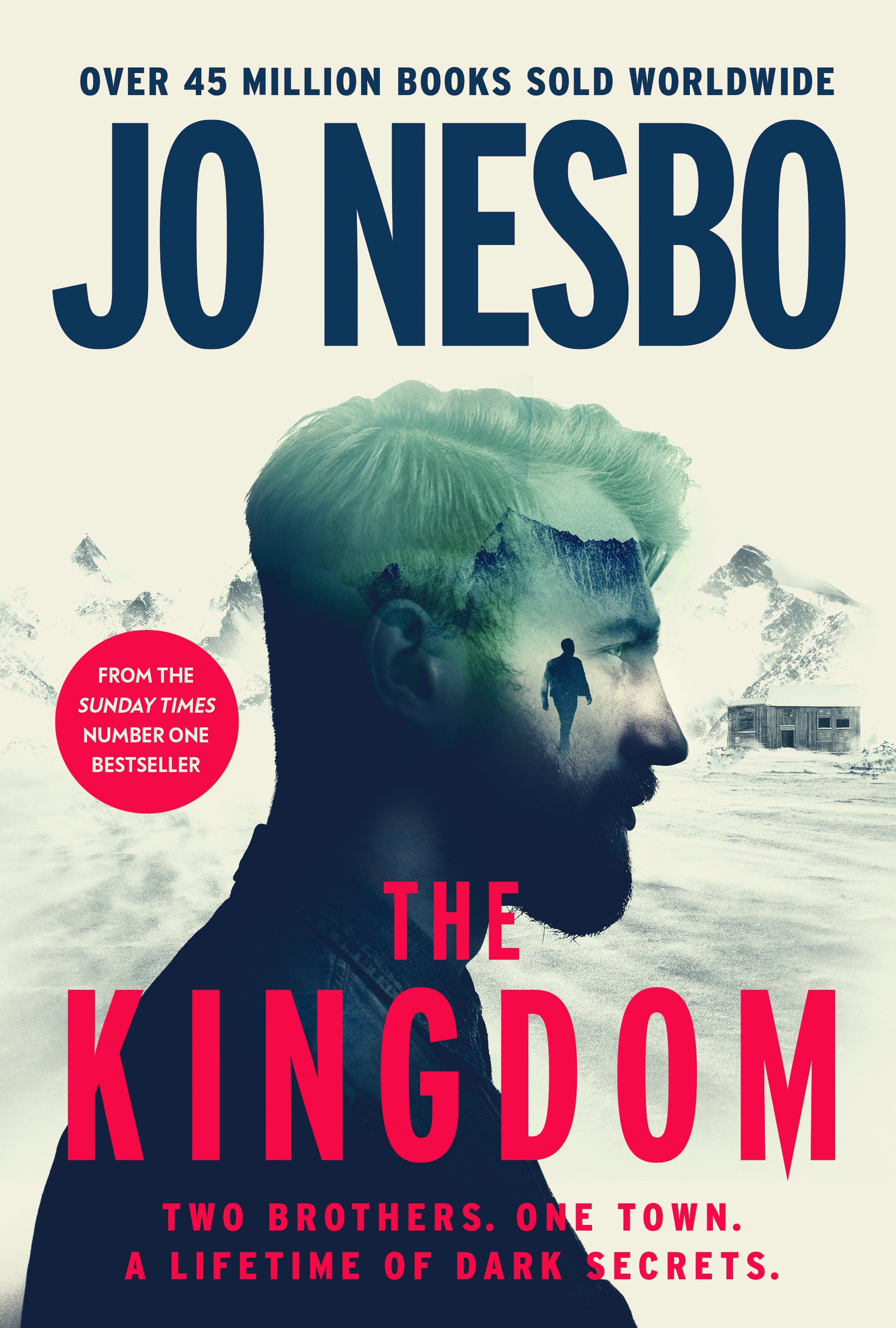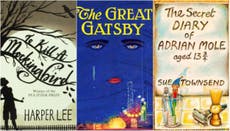Jo Nesbo’s The Kingdom - review: ‘As much like a miniseries as a novel’
Richard Lipez reviews Jo Nesbo’s newest novel The Kingdom and says the Norwegian noir is impossible to put down

Your support helps us to tell the story
From reproductive rights to climate change to Big Tech, The Independent is on the ground when the story is developing. Whether it's investigating the financials of Elon Musk's pro-Trump PAC or producing our latest documentary, 'The A Word', which shines a light on the American women fighting for reproductive rights, we know how important it is to parse out the facts from the messaging.
At such a critical moment in US history, we need reporters on the ground. Your donation allows us to keep sending journalists to speak to both sides of the story.
The Independent is trusted by Americans across the entire political spectrum. And unlike many other quality news outlets, we choose not to lock Americans out of our reporting and analysis with paywalls. We believe quality journalism should be available to everyone, paid for by those who can afford it.
Your support makes all the difference.You don't have to be a Buddhist to recognize the bad karma accumulating year by year for the Opgard brothers, Roy and Carl, in The Kingdom, a dense, suspenseful bundle of Norwegian noir by Jo Nesbo, the author of the esteemed Harry Hole police detective series. Melancholy, alcoholic Harry is nowhere to be found in the remote village of Os (not a typo). Instead, it's Kurt Olsen, the equally downcast town sheriff, who is certain these two generally well-liked village chaps - their parents died when the boys were in their late teens and Dad's beloved Cadillac DeVille flew off a cliff - are clever homicidal connivers. The constable is right, of course, for what little good his investigatory brainpower does him against a couple of sociopaths.
At 549 pages, The Kingdom (named after the Opgard's family farm) feels as much like a miniseries as a novel. You're so curious about what the next episode will bring that even if you've stepped away from the book for a meal or a good night's sleep, you feel like one of those 19th-century readers who stormed the New York Harbour, awaiting the arrival of a new instalment of a Dickens novel.
Most of Nesbo's characters are wracked with guilt – for good reason. Roy tells himself that “a minor theft, a trivial rejection – you never get over
The sometimes droll, sometimes eerily affectless, occasionally enraged narrator is Roy, the older brother, a mechanic who runs the Os convenience store and gas station. A few people in town think Roy is “in love with” the younger brother he protects from bullies and other annoying villagers. It soon becomes apparent, though, that the ongoing nonconsensual incest that sets an increasingly ugly chain of events in motion is of a different sort.
While brutal emotional injury is at the centre of the novel, social change is what keeps the Opgard family saga churning. A new expressway threatens to bypass the town and leave livelihoods in the lurch. It's Carl who comes back from college in Minnesota and a real estate career in Toronto with a plan to save Os' economy. He wants to build a 200-room tourist hotel on the Opgard grazing land, and his scheme is to finance the project with local villagers putting up their property as collateral. If you think uh-oh, you're right.
I have no doubt there are some lovely people in Norwegian mountain villages, but the people of Os are by and large a sad lot - gossips, drunks, molesters, shysters, egomaniacs, jealous lovers, arsonists and people willing to shove an honest man off a cliff to keep a secret.

Scandinavian noir is famous for its gore, and while “The Kingdom” isn't lacking in that department - a man is scalped, and his hair placed over the head of someone else to disguise their identity - most of what's grisly here is psychological. There's some excellent Albee-esque relational to-ing and fro-ing among Roy, Carl and Shannon, the wife Carl brings to Os from Canada. Roy falls head over heels for his sister-in-law, and she for him, and their trysts are both wild and fraught.
Most of Nesbo's characters are wracked with guilt – for good reason. Roy tells himself that “a minor theft, a trivial rejection – you never get over. They're like lumps in the body that get encapsulated but can still ache on cold days, and some nights suddenly begin to throb.” Carl, though, is less bothered by conscience. Of selling one's soul, he says, “It's always a buyer's market when it comes to souls.”
Why do mentally healthy readers want to spend time with these godawful people? Writers like Nesbo have that knack for instilling just enough humanity in their miscreants that we keep hoping they might, if not repent, then at least acknowledge their moral scuzziness. Or, being morally imperfect ourselves, we sort of hope they don't get caught - at least not yet. Think Patricia Highsmith's Tom Ripley and Walter White in Breaking Bad.
Buddhists – and any number of Presbyterians – will know that The Kingdom can only end in one way, and most souls will find Nesbo's finish both a relief and – don't look while I flagellate myself – a bit of a disappointment.
Not at all disappointing is the great bulk of this generally mesmerising novel, including its occasional wit. Such as a scene where a corpse is being disposed of in a grotesque manner while the car radio in the background blasts Whitney Houston's “I Will Always Love You”. It's one of the great moments in modern crime fiction.
The Kingdom by Jo Nesbo. Vintage, £20.
Lipez writes the Don Strachey PI novels under the name Richard Stevenson.
© Washington Post



Join our commenting forum
Join thought-provoking conversations, follow other Independent readers and see their replies
0Comments